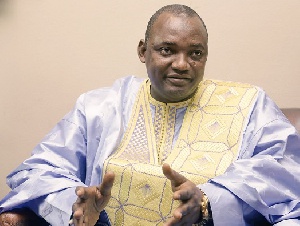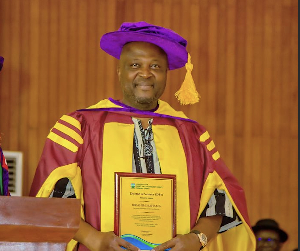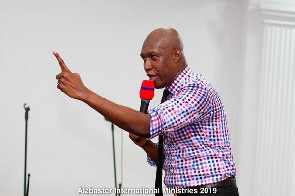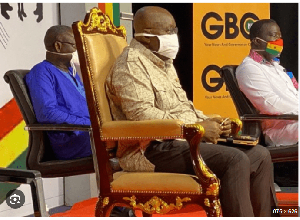When Adama Barrow became President of Gambia in 2016, ending Yahya Jammeh’s 22-year strongman rule, one of his key promises was to bring a new constitution to replace Jammeh’s. For the 22 years that Jammeh was president, he amended the constitution 50 times to perpetuate his stay in power.
Barrow, upon assuming office, appointed an 11-member Constitution Review Committee (CRC) to draft the country’s third constitution. The first constitution was in 1970 which was replaced in 1997 after a military coup led by Jammeh.
In March 2020, the CRC submitted its final draft. However, the process was abruptly halted when it failed to get the support of the country’s National Assembly members (or MPs).
The legislators rejected the draft constitution that would have set term limits for the country’s president. After days of intense debate, 31 members of the National Assembly voted for the new bill while 23 were against it, thus, the draft bill failed to garner the required 42-vote threshold to take it to the committee stage for another scrutiny before being passed.
The draft constitution contained a two-term limit, which would have applied retroactively to Barrow. The bill was drafted that way to avoid a situation where Barrow will use the new constitution to restart his mandates as it is playing out in Ivory Coast.
The draft constitution was popular among Gambians. A 2018 Afrobarometer survey on key provisions of the bill found strong support for constitutional changes that would:
Why was the draft constitution rejected?
The draft constitution was rejected by MPs loyal to Barrow because it will be applied retroactively.
“We don’t legally have the power to pass this draft constitution with a retroactive clause,” said minority leader Samba Jallow. His National Reconciliation Party aligns with Barrow’s National People’s Party.
Ousainou Darboe, who leads the United Democratic Party, slammed the rejection of the draft constitution. “Sept. 22 marks a very dark day in the post-dictatorship in the Gambia,” Reuters quoted him as saying at a press conference. This decision “highlights the unwillingness of the Barrow-led administration to prioritize public and national interest.”
It is unclear what Barrow’s next move is. It is either his government redo the draft constitution or make changes to the 1997 constitution to suit contemporary times. However, Gambia needs to depart from the Jammeh era and that includes doing away with his constitution.
Gambia’s next presidential election is slated for 2021. Barrow says he will contest. Unless a new draft constitution is adopted, Barrow will have no limits on how many five-year terms he can seek.
Africa News of Monday, 28 September 2020
Source: face2faceafrica.com













